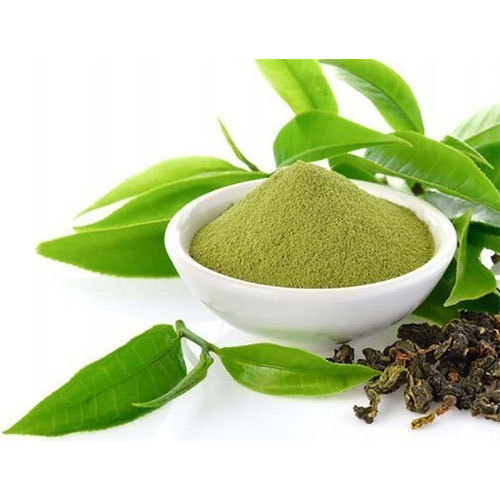Singapore Nanyang Technological University Researchers Discover That Antioxidants In Green Tea Can Fight Tuberculosis
Source: Thailand Medical News Dec 18, 2019 6 years, 1 week, 1 day, 15 hours, 39 minutes ago
Epigallocatechin gallate (
EGCG), an
antioxidant found in the
green tea plant could become key to tackling
tuberculosis one day, a team of international scientists led by
Nanyang Technological University (
NTU),
Singapore has found. Through laboratory investigations, the team led by NTU Professor Dr Gerhard Grüber discovered how the prominent compound, known as
epigallocatechin gallate or
EGCG, can inhibit the growth of a
tuberculosis-causing bacteria strain.

The
antioxidant EGCG does so by binding to an enzyme that provides biological energy for cellular activity. The process results in a dip in the amount of energy the bacteria has for its cellular processes vital for growth and stability, such as cell wall formation.
The research team, which includes NTU Associate Professor Roderick Bates, National University of Singapore (NUS) Professor Thomas Dick, and collaborators from the US and New Zealand, also identified the exact sites on the enzyme at which the
EGCG needs to bind to in order to affect energy production in the bacterial cell.
The study findings were published in the journal
Scientific Reports in November. A patent has been filed for the identification of the
EGCG as a possible form of treatment for
tuberculosis.
These research findings could pave the way for the creation of novel drugs to combat
tuberculosis, one of the most deadly infectious diseases in the world. Southeast Asia accounts for 41 percent of the world's
tuberculosis cases, with 4 million new cases every year.
Although there are already drugs that target mycobacterium tuberculosis (M. tuberculosis), the bacteria that causes the airborne disease, new ones are needed because the bacteria is increasingly showing resistance to many of the drugs.
Dr Gerhard Grüber from the NTU School of Biological Sciences told
Thailand Medical News "Though
tuberculosis is curable, the success of current drugs on the market is increasingly being overshadowed by the bacteria's clinical resistance. Our discovery of the
EGCG's ability to inhibit the growth of M.
tuberculosis will allow us to look at how we can improve the potency of this compound in
green tea, and other similar compounds, to develop new drugs to tackle this airborne disease."
Typically, cells require energy for vital processes such as cell wall formation to take place. They get their energy from an energy storage molecule made by an enzyme called ATP synthase. Without energy for essential cellular activity, a cell loses its stability
and eventually dies.
To assess the factors affecting the production of ATP synthase, and thus the amount of energy a bacterial cell has for growth, the NTU-led team studied mycobacterium smegmatis and mycobacterium bovis, both of which belong to the same family as M.
tuberculosis. These mycobacterial strains share a similar structural composition.
The research team first found that alterations to the genetic code for ATP synthase resulted in an enzyme that produced fewer energy storage molecules in the bacterial cells, slower cell growth, and an altered colony shape.
Armed with this data, the scientists then screened for and found 20 compounds that could possibly bind to ATP synthase and cause the same blocking effect, and then tested them for their efficacy. Only
EGCG, a natural
antioxidant that occurs in a large amount in
green tea, showed it had the same crucial effect of reducing energy storage molecules in the bacterial cell.
The researchers from
NTU are now looking at optimizing the activity of
EGCG for increased efficiency and potency in fighting the
tuberculosis bacteria. Their ultimate goal is to develop a drug cocktail that will tackle multi-drug resistant
tuberculosis.
Reference: Wuan-Geok Saw et al. Disrupting coupling within mycobacterial F-ATP synthases subunit ε causes dysregulated energy production and cell wall biosynthesis, Scientific Reports (2019). DOI: 10.1038/s41598-019-53107-3
